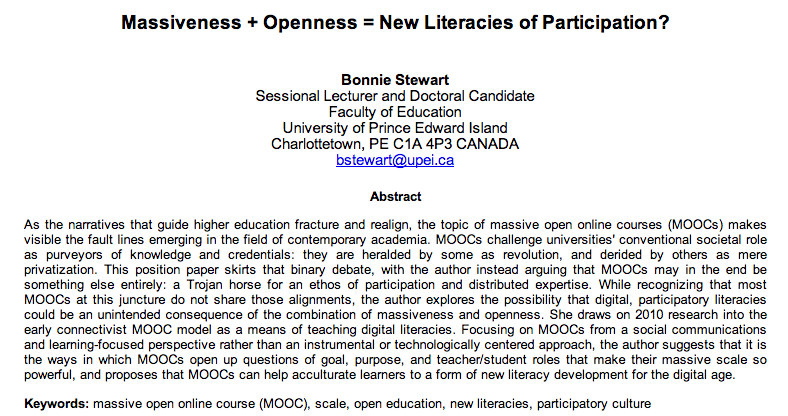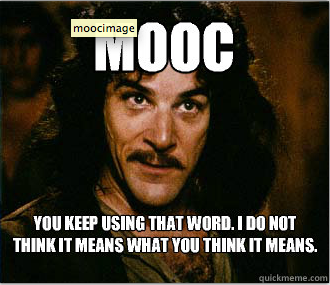Late last month I went to London, not to look at The Queen but to lead three days of Media & Information Literacies workshops with Swedish teachers. It was a pleasure and a privilege and also just a really good time…and I came away having learned the following:
1. When I was 13 and I thought I wanted to run away to London to hang out with David Bowie and Boy George I HAD TOTALLY GOOD INSTINCTS. At least about cities.
2. Swedish teachers do not dress like Canadian teachers. Which may be just a Euro v. North American style distinction…but since, in my world, you can’t turn around without stumbling on people fretting about the dang PISA test and Finland, the theme of teacher professionalization and status has been on my mind. And while Sweden is NOT Finland, hey, it’s next door. So when I wandered into the first all-Swedish event of my stay, I found it curious to observe the fact that pretty much every. single. person brought the funk and androgyny (and great boots!) generally reserved here for NYC artistes or filmmakers and I wondered about cultural capital and masculinities and how a profession builds its own reputation for cool. Then I wondered where I could get myself some new and improved boots, thank you very much.
3. Again, Sweden is NOT Finland. Ahem. I learned Swedes are not officially fond of Finland. Or the PISA test. They will, if pressed, politely talk about their boots. The folks I met mostly wanted to talk with great thoughtfulness and enthusiasm about learning. They were lovely. Thanks, Per!
4. Swedish schools increasingly – though not necessarily entirely equitably – have 1 to 1 computing, meaning a device in the hands of every student.
The last one blew my mind.
The possibility of an education system where connectivity and bandwidth and crappy outdated computers and blocked sites are NOT a hurdle is, frankly, totally outside my experience. When I realized I was talking about networked education with a group of people who actually have the infrastructure to DO networked education, I felt like I’d landed at Disneyland.
For all of about 23 minutes.
Then I listened some more to what they were telling me. And I discovered what I should have known – the challenges education faces coming to terms with information abundance and 21st century communications media and all that those shifts imply are NOT actually infrastructure challenges. Yes, those are real, and they are political, and distribution of technologies is uneven and unequal and that is important to talk about and address. But they are not the key barrier.
Technology is not a solution to problems of competing knowledge claims and changing communications structures. Digital technologies can be a tool for making meaning within information abundance, but in order to function as a tool, they require skills and literacies for using them effectively FOR THAT PURPOSE.
If you could wave a magic wand and put a working iPad in the hands of every teacher and student in the world tomorrow, we’d still have an institutional schooling structure that is neither designed nor equipped nor interested in truly taking on the challenges of networked education, no matter how much lip service it pays to the ideas of “innovation” and “21st century learning.” This structure is not something we can carve out and separate from the heart of our concepts of school – it IS our concept of school. We – teachers and students most of the world ’round – are complicit in it; in upholding and replicating what Lankshear and Knobel call the “deep grammar” of schooling (2006). When we consider the idea of classrooms full of young people with devices in their hands, the words that leap to minds and mouths aren’t “connection!” or “participation!” but “distraction” and “disruption”…in all senses of the term. This is our institutionalization showing.
Our institutionalization means that, without new ways to conceptualize the work of learning, we end up replicating top-down power and knowledge structures no matter how many shiny screens we add to classrooms. Yet knowledge and information no longer work that way, not really.
I left London wondering about power and control.
***
When I talk about networked education, I try hard to confront and undermine the fetish for “shiny!…the idea of tech as a goal in itself. I focus on literacies for filtering and prioritizing within a world of immersive communications: on networks as a way of un-schooling and adapting our systems of education.
Networks need not be digital – we all grow up within networks of friends and family and acquaintances to whom we are tied one-to-one with various degrees of closeness and communications. At the same time, many of us have, with Facebook, ported our f2f networks online and live in a state of hybridity, blurring online and offline identities and connections. We are skilled in many of the practices we might need to make meaning in the great firehose of information abundance, but our culture is not giving us the meta-literacies to recognize and value and utilize those skills.
Increasingly, I encounter a strain of “I’ve never tried it but I know it’s bad” resistance to networks as educational possibilities; to social media as represented by mainstream media and cultural narratives. People have heard of Twitter, or blogging…they may even have accounts. They often use Facebook socially. But they come to the idea of educational use, increasingly, steeped in the pervasive cultural messages that social media is making us lonely or stupid or toxic or whatever the deterministic accusation of the month may be. Educators get the message that these communications media are not part of the legitimate curriculum, of the *true* pursuit of knowledge.
I get it. And I get that networks are hard, and messy, and require a constant filtering that exhausts us: I live it. But I want to consider why these cultural messages are growing stronger; who is served in the fantasy of imposing control over the proliferation of networked, peer-to-peer communications.
Some of these questions came together for me in London, in the midst of presenting. I was a few slides into the second deck below, on the second day of the workshop, talking about traditional broadcast media and information literacies and the idea of trusted channels. It occurred to me that in the midst of information abundance, our desire for trusted channels so we don’t HAVE to do the constant work of filtering is…huge. It occurred to me that the cultural narratives circulating about overload and lack of connection serve to blind us to whatever network literacies we actually practice, and that public models for complex filtering are rare. It occurred to me that those narratives implicitly encourage the default institutionalized passivity of waiting for “good,” sanctioned information from established, gatekept, powerful channels. And it occurred to me that those channels tend to be corporate or institutional hierarchies with a great deal of power and a great deal to lose if peer-to-peer networked learning and communications actually manifest to capacity, in our society. It occurred to me, much as Sarah Kendzior succinctly stated in Al Jazeera yesterday, that “demonizing social media can be a play for power.” She’s talking state power. But I’m not sure it’s any different in education. Just ask every system struggling with the externalized standards of the PISA test.
This doesn’t mean networks are in any way idealized forms of communications. That need to leap to the binary assumption that critique of one thing equals uncritical lionization of its perceived Other is itself residue of the deep grammar of schooling, the Enlightenment categorization embedded in our cultural practices. Institutions and networks are neither entirely separate nor either of them ideal. We need to be able to discuss where each offers value, and to whom. But in order to do that, we need to unpack our pre-conditioning, our sense of deep vulnerability without someone in authority telling us what to think.
Or maybe Pink Floyd were wrong. Maybe we *do* need thought control, after all.
What do YOU think? How do we address the ways in which the deep grammar of schooling and its inherent top-down structure still constitute the language our thoughts are written in? And for those taking part in Dave’s #rhizo14 conversation this week, what role do you think writing itself plays in this?
And what would (or do) YOU do in a classroom full of people with devices?


